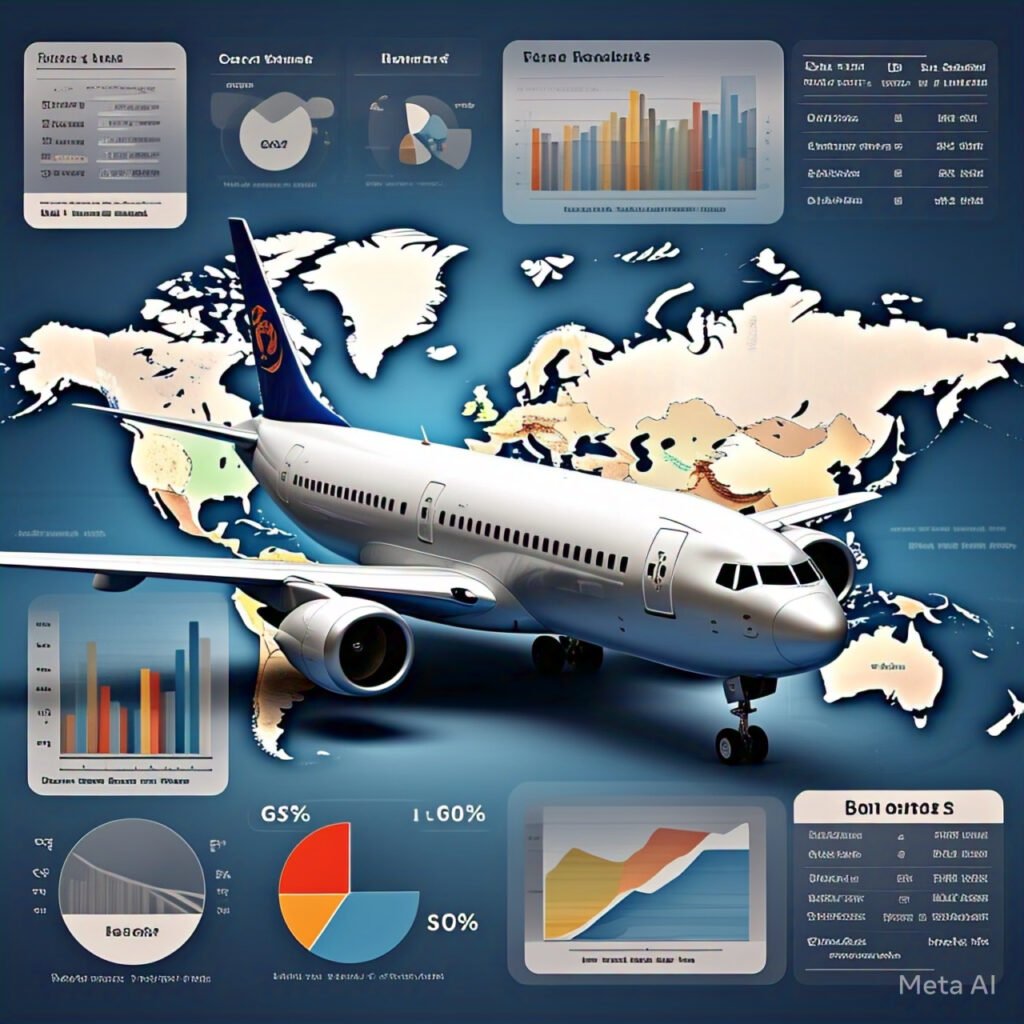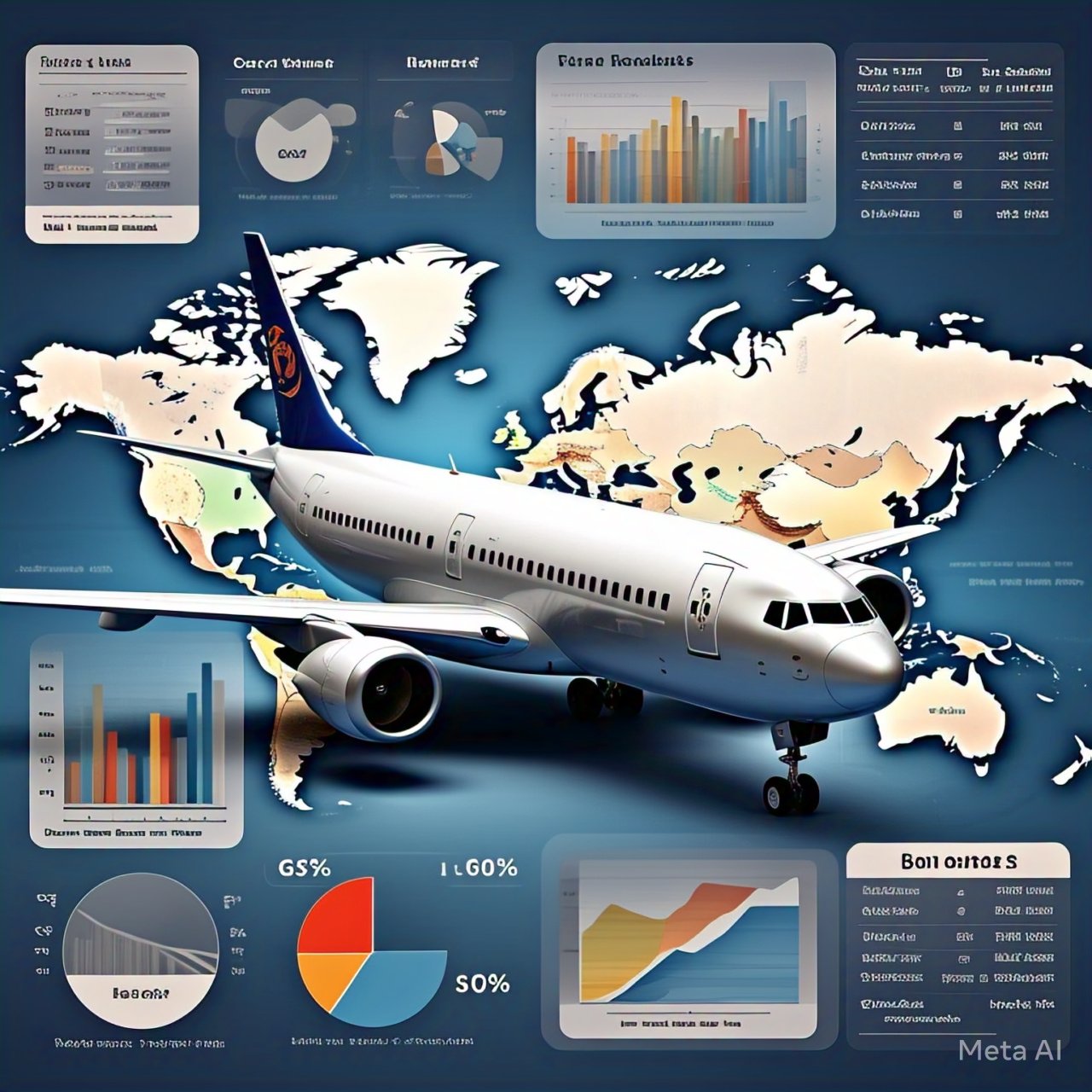Understanding how GST affects airfare is essential for travelers and businesses alike. In today’s complex tax landscape, GST on airfare plays a crucial role in determining the final cost of both domestic and international flight tickets. This article provides a comprehensive, up-to-date analysis of the GST framework applied to air travel, explaining its impact on ticket pricing, offering practical tips for claiming Input Tax Credit (ITC), and addressing common challenges. Whether you’re a frequent flyer, a business traveler, or a travel industry professional, read on for valuable insights and actionable advice.

Table of Contents
Introduction
The introduction of the Goods and Services Tax (GST) has transformed India’s tax regime and, by extension, the global travel industry. GST aims to simplify taxation by unifying various indirect taxes. When it comes to airfare, GST not only influences the final ticket price but also affects business expenses through mechanisms like the Input Tax Credit. In this article, we explore how GST on airfare impacts domestic and international travel, break down the key factors, highlight common hurdles, and offer a step-by-step guide for managing GST-related complexities.
GST Rates and Airfare Pricing
Domestic Flights
- GST Rates by Class:
- Economy Class: Typically taxed at around 5%.
- Business/First Class: Higher service levels attract a rate of approximately 12%.
- Fare Composition:
Domestic airfare is comprised of the base fare, fuel surcharges, and additional fees. GST is applied only to specific components, which can sometimes lead to variations in the final cost. - Example Calculation:
Suppose the base fare is INR 1,000. For an economy ticket, a 5% GST adds INR 50, whereas for a business ticket, a 12% GST would add INR 120. Additional fees, such as baggage charges or booking fees, may also have GST applied.
International Flights
- GST Application:
International air travel often features a more complex GST structure. While many international segments are zero-rated, certain components (like the domestic portion or ancillary services) might still attract GST (typically 5% or 12% depending on the class). - Exemptions and Special Cases:
Fully international flights can sometimes be exempt, but connecting or transit segments within India may incur GST. - Comparative Impact:
A shift from multiple indirect taxes to GST generally lowers the overall tax burden on airfare, making travel slightly more affordable for economy travelers while maintaining higher rates for premium services.
For further details on airfare calculations under GST, check reputable sources like the GST Council and ClearTax.
Key Factors Influencing GST Impact on Airfare
Flight Class & Service Type
- Class Differentiation:
The GST rate varies significantly between economy and business classes. Premium services command higher rates due to added amenities. - Service Bundling:
Airlines bundle various services (like in-flight meals, extra legroom, etc.), which may be taxed differently.
Breakdown of Fare Components
- Base Fare vs. Ancillary Charges:
Only certain parts of the fare (e.g., base fare and some surcharges) attract GST. Understanding this breakdown can help travelers determine how much tax they are paying. - Transparency Issues:
Not all airlines clearly disclose the GST component in the final fare, which can confuse consumers.
Regional Exemptions & Variations
- Special Routes:
Some routes or regions may benefit from exemptions or reduced rates, such as flights originating from or destined to specific northeastern states in India. - Policy Changes:
Government policies and periodic GST council meetings may adjust rates or offer additional exemptions, making it crucial for travelers to stay informed.
Hurdles and Complexities
Complex Fare Structures
- Multiple Components:
Airfares include a mix of base fares, surcharges, and fees. Calculating the exact GST can be challenging when different components are taxed at different rates.
Inconsistent Application
- Airline Variability:
Different airlines may integrate GST into their pricing structures in varied ways, leading to discrepancies between advertised and final ticket prices.
Documentation and Compliance
- Input Tax Credit (ITC):
For businesses, claiming ITC on flight tickets requires proper GST-compliant invoices. Failure to provide accurate GST details during booking can result in loss of ITC benefits. - Record-Keeping:
Maintaining proper documentation is essential for both individual and business travelers to ensure compliance and facilitate any tax claims.
Transparency Issues
- Hidden Taxes:
Some fares do not explicitly display the GST amount, making it hard for travelers to assess true costs. - Consumer Awareness:
Educating consumers on how GST affects their travel expenses is vital to promote transparency and trust in the pricing mechanism.
Step-by-Step Guide to Managing GST on Airfare
1. Identify Fare Components
- Breakdown:
Separate the base fare, fuel surcharges, service fees, and other ancillary charges. - Tip:
Use online fare calculators or refer to detailed invoices provided by airlines.
2. Determine Applicable GST Rates
- Domestic vs. International:
Verify whether the flight is domestic (usually 5% for economy, 12% for business) or has international elements (check for zero-rated segments). - Check Exemptions:
Identify any exemptions applicable to your route or service class.
3. Calculate the GST Amount
- Simple Formula:
Multiply the taxable component by the GST rate (e.g., Base Fare × 5%). - Use Online Tools:
Utilize tools from trusted financial sites like ClearTax or MyBiz.
4. Review Your Final Fare
- Cross-Verification:
Compare the GST-inclusive fare with other airlines to ensure competitive pricing. - Documentation:
Ensure that your ticket invoice clearly states the GST component for future reference or ITC claims.
5. Claiming Input Tax Credit (For Business Travelers)
- Enter GST Details:
Always provide your company’s GST number during booking. - Obtain a Valid Invoice:
Request a GST-compliant invoice immediately after booking or travel. - Record Keeping:
Maintain digital or hard copies of all relevant invoices for accounting and audit purposes.
Tips & Tricks for Travelers and Businesses
- Compare Fares:
Use online comparison tools to view both GST-inclusive and GST-exclusive fares. - Maximize ITC Benefits:
If you’re a business traveler, always include your GST number to enable Input Tax Credit claims. - Stay Updated:
Monitor GST council updates and government announcements on changing tax rates or exemptions. - Keep Detailed Records:
Save your travel invoices and receipts to ensure smooth ITC claims during tax filings. - Consult Experts:
If GST calculations seem complicated, consider consulting a tax professional or our expert services at AM Global for personalized advice.
Frequently Asked Questions (FAQs)
What is the GST rate on domestic economy flight tickets?
Domestic economy tickets generally attract a GST of around 5%.
Does GST apply to international flights?
Many fully international segments are zero-rated; however, parts of the journey or ancillary services may attract GST at 5% or 12%.
How can business travelers claim the Input Tax Credit (ITC)?
By providing the company’s GST number during booking and obtaining a GST-compliant invoice, business travelers can claim ITC on the tax paid.
Why do some airlines show different final fares?
Differences may arise due to varying methods of integrating GST and additional surcharges across airlines.
How can I verify the GST component on my airfare?
Review your detailed ticket invoice and use online GST calculators provided by reputable financial services like ClearTax.
Conclusion
GST on airfare is a vital element that influences both the cost of travel and the overall expenditure for businesses. Whether traveling domestically or internationally, understanding how GST is calculated, how it impacts various fare components, and the methods for claiming ITC can lead to significant savings and more informed travel decisions. By breaking down complex fare structures and staying informed about policy changes, travelers and businesses can navigate the GST landscape with confidence.
Disclaimer
The information provided in this article is for general informational purposes only and does not constitute professional financial or tax advice. Readers are advised to consult with a qualified tax professional or financial advisor for specific advice tailored to their circumstances.
Affiliate Disclosure
Some links included in this article may be affiliate links. If you make a purchase through these links, we may earn a commission at no additional cost to you. This helps support our work and allows us to continue providing free, valuable content.







